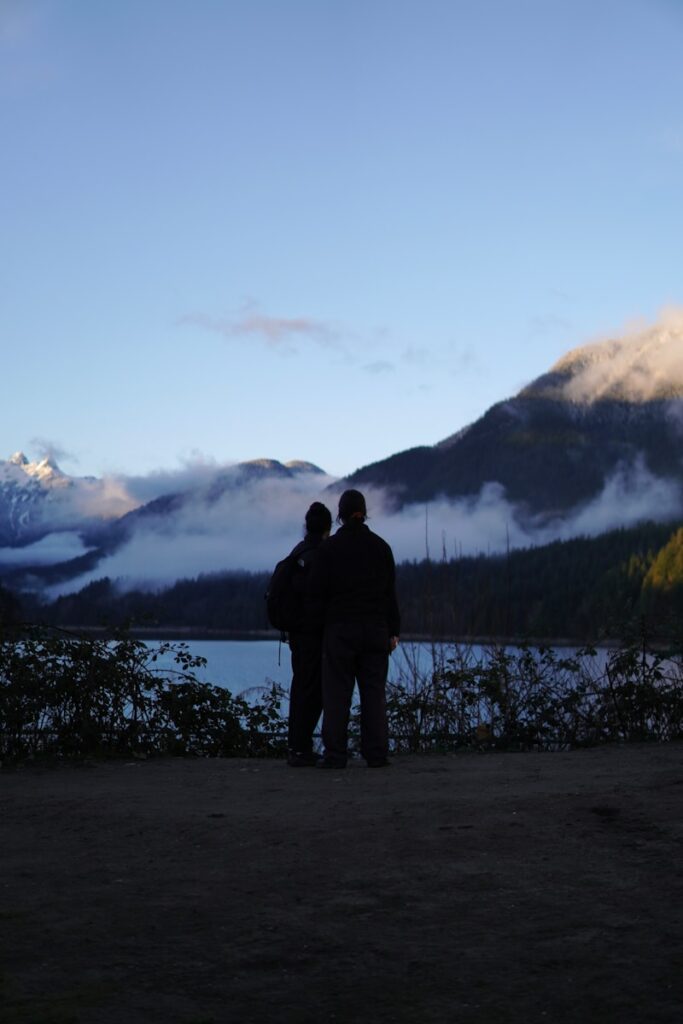Scattering ashes in British Columbia offers a meaningful way to honor a loved one. Understanding the regulations across the province ensures a respectful and legal process. Here’s a complete guide for British Columbia with insights for specific areas.
Private Property
- In British Columbia, you are allowed to scatter ashes on private property with the owner’s consent. Whether it’s a home, cottage, or farm, obtaining permission in writing is recommended to avoid any legal issues.
Public Property
- Scattering ashes on public land, including parks, conservation areas, or beaches, often requires permission from the managing authorities. National and provincial parks in British Columbia may allow ash scattering, but specific locations may be designated, and approval should be sought in advance from park authorities.
- Local municipalities might have their own regulations, so checking with city bylaws or local government offices is crucial.
B.C. Waterways
- British Columbia allows scattering ashes in waterways such as rivers, lakes, and the Pacific Ocean. Environmental guidelines recommend using biodegradable urns and scattering ashes in locations away from recreational use to protect the environment.
- You may also need to consult with local authorities to ensure there are no specific rules for certain high-traffic or ecologically sensitive areas.
Metro Vancouver-Specific Regulations
- In Metro Vancouver, including the city of Vancouver, scattering ashes on public or private property requires permission from the appropriate authorities.
- Vancouver’s Park Board oversees the city’s parks, and specific permissions are required to scatter ashes in popular locations like Stanley Park or beaches. There are also cemeteries offering designated scattering gardens for families who want a peaceful and managed space.
- Always confirm with local officials before scattering ashes to avoid any legal complications.
Victoria and Vancouver Island Regulations
- Victoria and other parts of Vancouver Island allow scattering ashes in public spaces and waterways with similar provincial regulations. However, you should check with the local government or parks management, especially for popular parks or tourist areas like Butchart Gardens or the Island’s coastal regions.
- Scattering ashes in the ocean surrounding Vancouver Island is permissible, but following environmental guidelines is encouraged to avoid affecting local wildlife or ecosystems.
Okanagan and Interior BC
- The Okanagan region, known for its natural beauty, is a popular place for scattering ashes. Private property, such as vineyards or lakeside homes, may be used with permission from the owner.
- Public parks and lakes in the Okanagan may allow scattering, but it’s essential to verify with local authorities or park managers to ensure you are following any specific rules.
- The region’s large lakes, including Okanagan Lake, are popular for scattering ashes, but it’s important to choose a quiet spot and use biodegradable materials for environmental protection.
Other Notable Areas in British Columbia
- Whistler: Scattering ashes on public land or in conservation areas near Whistler may require permission. Contact the local municipality or park authorities for guidance, particularly in areas like Garibaldi Provincial Park.
- Northern BC: Northern British Columbia offers expansive wilderness for scattering ashes. Crown land is generally open to scattering, but in protected conservation areas, it is best to check with local authorities.
- Kootenay Region: The Kootenay region follows similar guidelines for public and private property. Many residents choose lakes or mountain areas for scattering, but provincial park permissions may be required.
Where Ash Scattering is Prohibited in British Columbia
- Private Property Without Permission: Scattering ashes without the owner’s consent is illegal in British Columbia.
- Certain Municipal Areas: Some municipalities may restrict scattering ashes in highly trafficked urban parks or specific public locations. Always check with the local government or parks department.
- Cemeteries Without Designation: Scattering ashes in cemetery grounds without explicit permission or in areas not designated for ash scattering is prohibited.
- Environmentally Protected Areas: In sensitive ecological areas or parks, scattering may be restricted to protect wildlife and natural habitats. Ensure you check for specific conservation restrictions before scattering ashes in these areas.
Cultural and Religious Considerations
- British Columbia’s multicultural society includes a wide range of religious and cultural traditions surrounding ash scattering. Hindu, Buddhist, Indigenous, and Christian practices may involve different methods and customs. It’s important to respect both cultural sensitivities and legal guidelines when performing ash scattering ceremonies.
Environmental Considerations
- Scattering ashes can have environmental impacts, especially in ecologically sensitive areas. To reduce your environmental footprint, use biodegradable urns and avoid scattering in areas with high visitor traffic.
- Pay attention to wind direction and choose locations that will not disrupt local wildlife or the natural ecosystem.
Practical Tips for Scattering Ashes
- Location: Choose a location that is meaningful and check all local regulations before proceeding.
- Weather: Be mindful of wind direction, particularly in open spaces or near water, to ensure ashes are dispersed as intended.
- Ceremony: Consider planning a small, private ceremony to align with your family’s traditions and beliefs.
- Safety: Ensure all participants are safe, especially if scattering from boats, cliffs, or other remote areas.
By following these guidelines, you can ensure a respectful and legal ash scattering ceremony in British Columbia. Always consult local authorities or landowners in advance to ensure you are abiding by the rules, and consider the environmental impact of your choices to honor both your loved one and the land.

